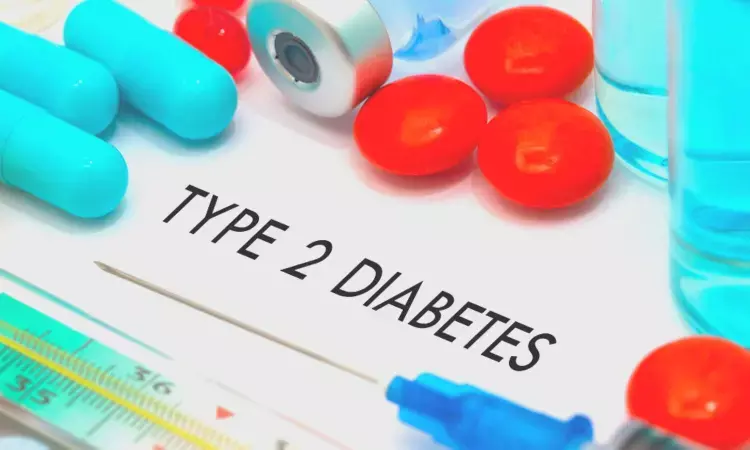- Home
- Medical news & Guidelines
- Anesthesiology
- Cardiology and CTVS
- Critical Care
- Dentistry
- Dermatology
- Diabetes and Endocrinology
- ENT
- Gastroenterology
- Medicine
- Nephrology
- Neurology
- Obstretics-Gynaecology
- Oncology
- Ophthalmology
- Orthopaedics
- Pediatrics-Neonatology
- Psychiatry
- Pulmonology
- Radiology
- Surgery
- Urology
- Laboratory Medicine
- Diet
- Nursing
- Paramedical
- Physiotherapy
- Health news
- Fact Check
- Bone Health Fact Check
- Brain Health Fact Check
- Cancer Related Fact Check
- Child Care Fact Check
- Dental and oral health fact check
- Diabetes and metabolic health fact check
- Diet and Nutrition Fact Check
- Eye and ENT Care Fact Check
- Fitness fact check
- Gut health fact check
- Heart health fact check
- Kidney health fact check
- Medical education fact check
- Men's health fact check
- Respiratory fact check
- Skin and hair care fact check
- Vaccine and Immunization fact check
- Women's health fact check
- AYUSH
- State News
- Andaman and Nicobar Islands
- Andhra Pradesh
- Arunachal Pradesh
- Assam
- Bihar
- Chandigarh
- Chattisgarh
- Dadra and Nagar Haveli
- Daman and Diu
- Delhi
- Goa
- Gujarat
- Haryana
- Himachal Pradesh
- Jammu & Kashmir
- Jharkhand
- Karnataka
- Kerala
- Ladakh
- Lakshadweep
- Madhya Pradesh
- Maharashtra
- Manipur
- Meghalaya
- Mizoram
- Nagaland
- Odisha
- Puducherry
- Punjab
- Rajasthan
- Sikkim
- Tamil Nadu
- Telangana
- Tripura
- Uttar Pradesh
- Uttrakhand
- West Bengal
- Medical Education
- Industry
Thiazolidinediones with high glucose-lowering efficacy reduce secondary CV endpoints; ADA and EASD's consensus

USA: Thiazolidinediones are oral medications having high glucose-lowering efficacy and durability of glycemic effect, according to a recent consensus update by the American Diabetes Association (ADA) and the European Association for the Study of Diabetes (EASD).
The report by ADA and EASD on hyperglycemia management was presented at the 58th EASD Annual Meeting in Stockholm, Sweden, and subsequently published in the journals Diabetologia and Diabetes Care.
The document mentioned that in the PROspective pioglitAzone Clinical Trial In macroVascular Events (PROactive) in patients with type 2 diabetes and macrovascular disease, there was a reduction in the secondary cardiovascular endpoints, although a significant primary outcome was not achieved. Lower risk of stroke or myocardial infarction was seen with pioglitazone vs placebo in the Insulin Resistance Intervention After Stroke (IRIS) study in patients without diabetes but with insulin resistance (HOMA-IR >3.0) and recent history of stroke or transient ischaemic attack.
The article further mentions the beneficial effects of pioglitazone on non-alcoholic steatohepatitis (NASH) and non-alcoholic fatty liver disease (NAFLD) which, the article states, "should be balanced against possible side effects of weight gain and bone fracture, congestive heart failure (HF) and fluid retention. Using low doses and combining it with other medications (SGLT2 inhibitors and GLP-1 receptor agonists) which promote sodium excretion and weight loss could mitigate its side effects.
According to the report, thiazolidinediones are generally not recommended in renal impairment due to the potential for fluid retention.
About Thiazolidinediones
Thiazolidinediones, also called glitazones, are medications used for the treatment and management of type 2 diabetes mellitus. The medications may act as an insulin sensitizer and a nuclear transcription regulator.
Thiazolidinediones' use in managing type 2 diabetes can help with insulin resistance and glycemic control. Two thiazolidinediones namely pioglitazone and rosiglitazone are currently approved by the FDA as monotherapy or combined with sulfonylureas it metformin for managing the condition.
Thiazolidinediones (TZDs) are insulin sensitizers that exhibit their mechanism of action through intracellular metabolic pathways to increase insulin sensitivity and enhance insulin action in critical tissues.
Dr Kamal Kant Kohli-MBBS, DTCD- a chest specialist with more than 30 years of practice and a flair for writing clinical articles, Dr Kamal Kant Kohli joined Medical Dialogues as a Chief Editor of Medical News. Besides writing articles, as an editor, he proofreads and verifies all the medical content published on Medical Dialogues including those coming from journals, studies,medical conferences,guidelines etc. Email: drkohli@medicaldialogues.in. Contact no. 011-43720751


